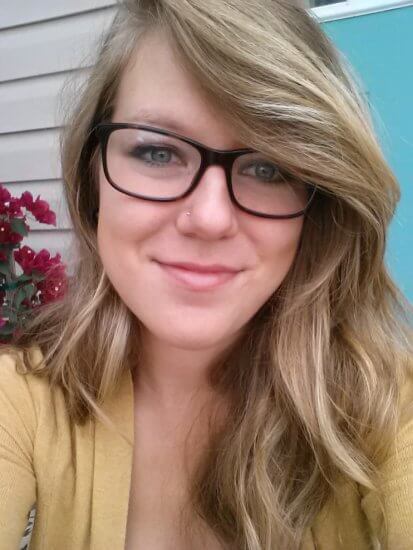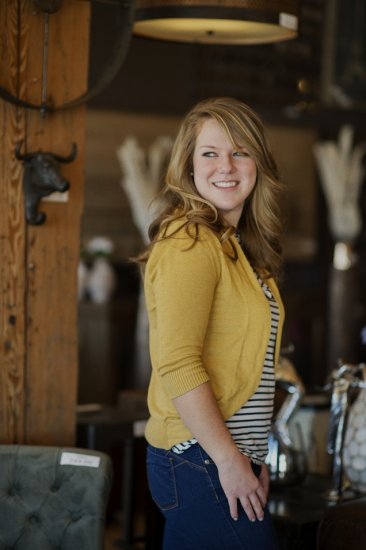AU opens doors for Master of Nursing student
If you haven’t thought much about the role of self-employed nurses in the healthcare system, that wouldn’t be surprising. Currently fewer than one per cent of nurses fall into this category.

Natalie Thiessen, a Master of Nursing (MN) learner at Athabasca University (AU), is researching the impacts of nursing regulation on the practice of self-employed nurses, who don’t work for formal health authorities or hospitals in the way most nurses do.
She has earned a $17,500 Frederick Banting and Charles Best Canada Graduate Scholarship to help support her with that research, and hopes she can contribute to improving overall patient experience by understanding the regulatory barriers that make it difficult for nurses to become self-employed.
“One of the most significant barriers to being a self-employed nurse is the way in which they’re regulated by the nursing regulatory bodies,” she said. “So that’s what led me to focus on specifically how regulations are impacting self-employed nursing.”
Yet if you had told her at the outset of her program that she would do AU’s research-based MN, rather than AU’s course-based MN, she might not have believed you. Before starting the AU program, she had never intended to do research.
“Yes, it’s scary and it’s unknown, but that’s how it has to start. You just jump in and figure it out as you go. ”
– Natalie Thiessen, Master of Nursing student, on her decision to switch to a thesis-based program
After finishing high school in Saskatchewan, Thiessen attended a bachelor of nursing program in the U.S., before returning to work at a hospital in Moose Jaw, Sask. She had planned to gain on-the-job experience before pursuing a master’s degree.
She shifted directions, though, and wanted to pursue a career in critical care, so she completed a critical care nursing program at Saskatchewan Polytechnic. Several years later, she learned that program was looking for an instructor. She jumped at the opportunity and found another great fit, but she wanted more education focused on teaching.
One of the requirements of the position was that Thiessen pursue a master’s degree, with one of her colleagues recommending the AU program, she signed up for the MN with a teaching focus. Her AU experience has so far been a positive one, in part because of the asynchronous delivery.
“While there have been a few times where we actually had to meet up online, the majority of the time you’re able to work on your own timeline and in your own time zone,” she said. “I really appreciate that.”
She took a philosophy course in her first semester, and based on her writing the professor encouraged her to pursue a thesis route instead of the course-based route as it would open more doors to pursue further education and research at a higher level.
After spending some time thinking about it, Thiessen decided she would regret it if she didn’t take advantage of the opportunity to do a research-based route, even though that wasn’t something she felt comfortable with.
“Yes, it’s scary and it’s unknown, but that’s how it has to start. You just jump in and figure it out as you go,” she said.

Her decision to focus her research on the impact of nursing regulation on self-employed nurses was based in no small part on her own experience supporting a family member who was diagnosed with cancer.
As a patient advocate, Thiessen helped the family member understand their rights and treatment options as a patient to ensure they received the full scope of care they needed. She said her presence at meetings with healthcare professionals drastically changed the care plan, and she thought there might be an overall benefit to patient care if more self-employed nurses were able to act in a similar role.
“It scares me to think, what are all these other people who don’t have an advocate doing? Is wholistic care not being provided, and their medical history not being considered? There are so many pieces that would have been completely different had I not been there.”
She said this experience paired with the fact self-employed nursing became far less common beginning in the 1930s. The number of self-employed nurses was drastically reduced as hospitals began to employ them directly. Nurses increasingly find themselves short-staffed, under-resourced, overworked, and in many cases unable to provide the level of care they would like to.
So Thiessen chose to explore a case study of nursing regulation in three Canadian provinces on the practice of self-employed nurses, with a goal of better understand what prevents nurses from becoming self-employed. The experience doing research—and discovering she really enjoys it—has helped her to see how many doors have opened for her.
A doctoral degree is likely in her future, and possibly a role educating master’s students once she gets a doctoral degree, and pursuing research opportunities that can influence nursing professionalism on a larger scale.
“I’m not exactly sure what [the future] will look like, but I’m open to new opportunities.”